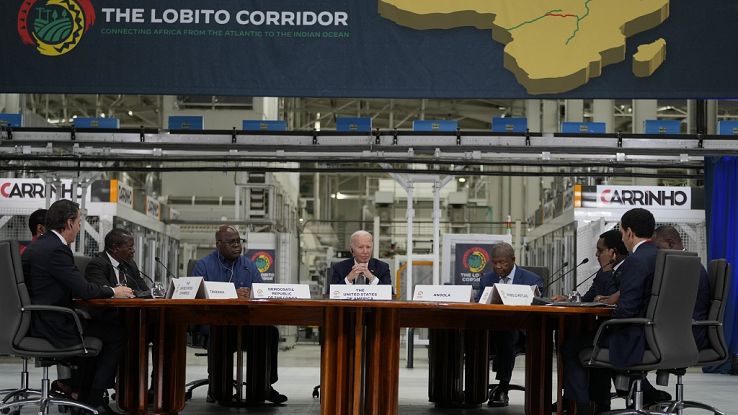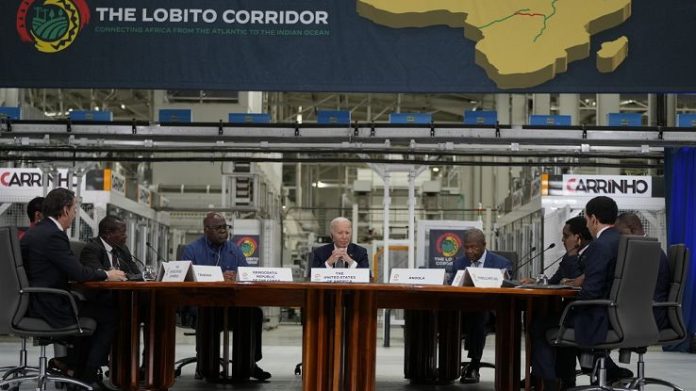Angola
President Joe Biden on his visit to sub-Saharan Africa pledged another $600 million for a cross-continent rail corridor project Wednesday, telling regional leaders that “Africa has been left behind for much too long. But not anymore. Africa is the future.”

Biden used the third and final day of his visit to Angola to showcase the Lobito Corridor railway, where the U.S. and allies are investing heavily to refurbish 800 miles (1,300 kilometers) of train lines in Zambia, Congo and Angola.
The project aims to advance the U.S. presence in a region rich in cobalt, copper and other critical minerals used in batteries for electric vehicles, electronic devices and clean energy technologies. By the end of the decade, the rail line could even go a long way toward linking southern Africa’s west and east coasts.
“It’s a game changer,” Biden said, and cited the transformational effect of building the transcontinental railroad in the United States. Cargo that once took 45 days to get to the United States — usually involving trucks to South Africa — will now take less than 45 hours, he said. He also predicted the project could transform the region from a food importer to exporter.
Altogether, Biden said the U.S. has invested $4 billion along the Lobito Corridor.
He was joined by the presidents of Angola, Congo and Zambia. Congo’s President Felix Tshisekedi said the project could create tens of millions of jobs in his country, saying it will “change the trajectory of our region for good.”
Angola’s President João Lourenço said it will be “a lynchpin for…economic development” in the region.
Biden said the Lobito Corridor constituted the largest U.S. investment in a train project outside the country.
The U.S. is promoting the Lobito Atlantic Railway upgrade as a catalyst that it hopes will spark a new era of Western private sector investment in this part of Africa. The corridor has also drawn financing from the European Union, the Group of Seven leading industrialized nations, a Western-led private consortium and African banks.
The corridor won’t be completed for years, meaning much of the work would come during the administration of Donald Trump, who takes office Jan. 20. The Biden White House says Republicans in Congress have supported past efforts to promote African business interests through targeted investments and that such initiatives have appealed to Trump and his key advisers in the past.



